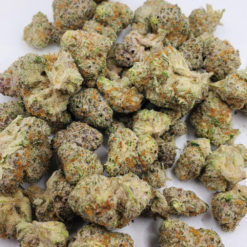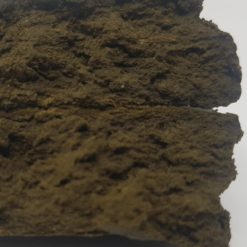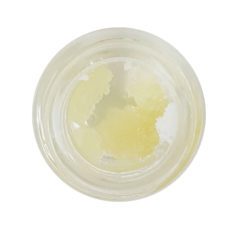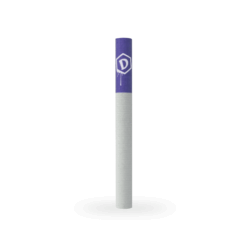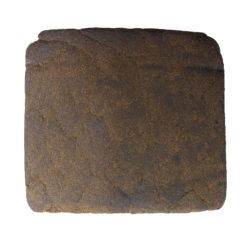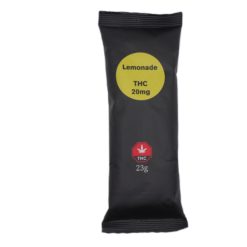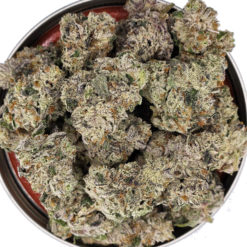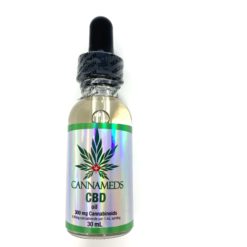For at least the last few decades, we’ve seen mounting evidence that CBD has profound anti-inflammatory effects within the human body. Over 20,000 peer-reviewed studies have been published since the late 1980s that attest to this fact. With so much data to support successful treatment of various inflammatory diseases, it’s no wonder CBD products are exploding into the market since cannabis legalization in October of 2018.
Now that stigmas have been virtually eliminated across the country, the discussions on CBD’s benefits have gone mainstream in Canada, making it a long overdue staple in promoting overall health. But one, maybe less known benefit of CBD is how it can be used to successfully treat gut based diseases like IBD, IBS, Crohns, and maybe even reducing the symptomatology of celiac disease should accidental ingestion of gluten occur.
So how does this work? How could CBD help with such chronic and debilitating gut conditions? Let’s dive in.
As is commonly known, CBD is a powerful anti-inflammatory and anti-convulsive. We don’t need to look much further to see evidence of that than its proven efficacy in treating seizure disorders in children, and adults alike. What’s discussed a little less in mainstream medicine however is the gut-brain connection and how this impacts our overall health.
As the gut-brain connection is studied further, there is mounting evidence that these 2 systems are so closely linked that one inevitably causes the other to become diseased.
For example, people with Alzheimers tend to also suffer from gut permeability issues, and people with gut issues also often suffer from anxiety disorders and depression.
CBD helps the gut via controlling inflammation and spasms, as it does with any other system in the body, but it also does something very interesting in helping promote a healthy gut microbiome. Some studies published using rat models that have had a gut-based disease induced through methods such as diet, gene manipulation, environmental stressors, and fecal transplants are showing that CBD administered as an oil tincture is showing promise with having the same healing effects on bacteria as it does to the host organism.
Scientists used the techniques above to manipulate the rat’s gut bacteria to transfer or induce disease into healthy rats in order to trigger various disease states. Once the disease state reached full effect, CBD, and in some cases low levels of delta-9-THC, were given to the rats over a set period to measure the effects and changes in the rat’s gut bacteria.
The results were very promising. CBD and low THC showed to have an effect at the genetic level of even the gut bacteria. What the researchers observed was a change in gene expression in the bacteria in the gut which favoured a more healthy expression than had been observed when disease state was induced. The exact reason for this change remains unclear, but it’s possible that when the rats took the CBD and low-THC cocktail, the gut bacteria responded to the changes in the body and they themselves became healthier because of a better living environment, which in turn dramatically improved the digestion and overall health of the host.
There is a great deal more to learn about CBD, but the more bodily systems that are tested individually with it, the more we’re learning about the potential healing power of this incredible naturally derived compound.
How to dose for gut health
Generally, dosing with CBD for gut health doesn’t differ from any other oral dosing strategy already known to be effective with other conditions such as the inflammatory and auto-immune conditions previously discussed in the series. One thing to note however is a healthy diet rich in good fats such as plant or fish derived omega-3s is a vital part of allowing CBD to be absorbed into the cells, so it can then modulate the CB2 receptors within them. The healthier your diet, and the more healthy fats you incorporate, the better CBD will work for you.
This concludes our three-part CBD series. We hope you found the information here useful! Don’t forget to visit the included citations and resources for additional information on CBD, and stop by our shop to browse CBD products and high CBD cannabis flower strains!
References and Resources
Cannabis and Inflammatory Bowel Disease
Russo EB. Clinical endocannabinoid deficiency (CECD): can this concept explain therapeutic benefits of cannabis in migraine, fibromyalgia, irritable bowel syndrome and other treatment-resistant conditions? Neuro Endocrinol Lett. 2004 Feb-Apr;25(1-2):31-9. PMID: 15159679.Clinical endocannabinoid deficiency (CECD): can this concept explain therapeutic benefits of cannabis in migraine, fibromyalgia, irritable bowel syndrome and other treatment-resistant conditions?
Borrelli F, Aviello G, Romano B, Orlando P, Capasso R, Maiello F, Guadagno F, Petrosino S, Capasso F, Di Marzo V, Izzo AA. Cannabidiol, a safe and non-psychotropic ingredient of the marijuana plant Cannabis sativa, is protective in a murine model of colitis. J Mol Med (Berl). 2009 Nov;87(11):1111-21. doi: 10.1007/s00109-009-0512-x. Epub 2009 Aug 20. PMID: 19690824.Cannabidiol, a safe and non-psychotropic ingredient of the marijuana plant Cannabis sativa, is protective in a murine model of colitis
Esposito G, Filippis DD, Cirillo C, Iuvone T, Capoccia E, Scuderi C, Steardo A, Cuomo R, Steardo L. Cannabidiol in inflammatory bowel diseases: a brief overview. Phytother Res. 2013 May;27(5):633-6. doi: 10.1002/ptr.4781. Epub 2012 Jul 20. PMID: 22815234.Cannabidiol in inflammatory bowel diseases: a brief overview
Couch DG, Tasker C, Theophilidou E, Lund JN, O’Sullivan SE. Cannabidiol and palmitoylethanolamide are anti-inflammatory in the acutely inflamed human colon. Clin Sci (Lond). 2017 Oct 25;131(21):2611-2626. doi: 10.1042/CS20171288. PMID: 28954820.Cannabidiol and palmitoylethanolamide are anti-inflammatory in the acutely inflamed human colon
Al-Ghezi ZZ, Busbee PB, Alghetaa H, Nagarkatti PS, Nagarkatti M. Combination of cannabinoids, delta-9-tetrahydrocannabinol (THC) and cannabidiol (CBD), mitigates experimental autoimmune encephalomyelitis (EAE) by altering the gut microbiome. Brain Behav Immun. 2019 Nov;82:25-35. doi: 10.1016/j.bbi.2019.07.028. Epub 2019 Jul 26. PMID: 31356922; PMCID: PMC6866665.Combination of cannabinoids, delta-9-tetrahydrocannabinol (THC) and cannabidiol (CBD), mitigates experimental autoimmune encephalomyelitis (EAE) by altering the gut microbiome


